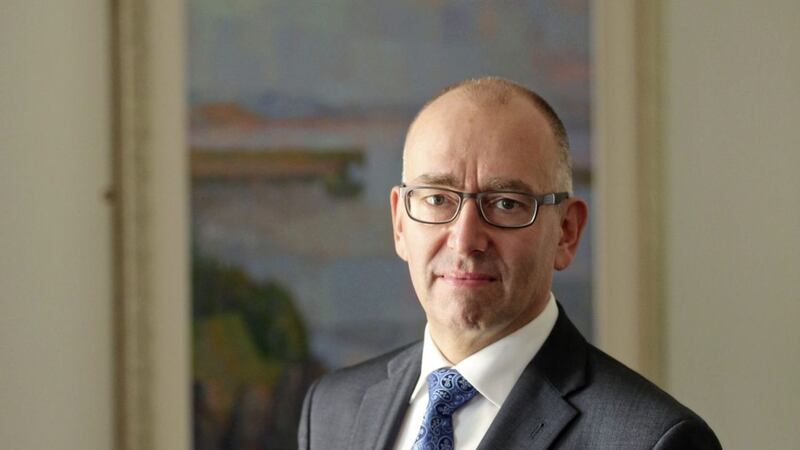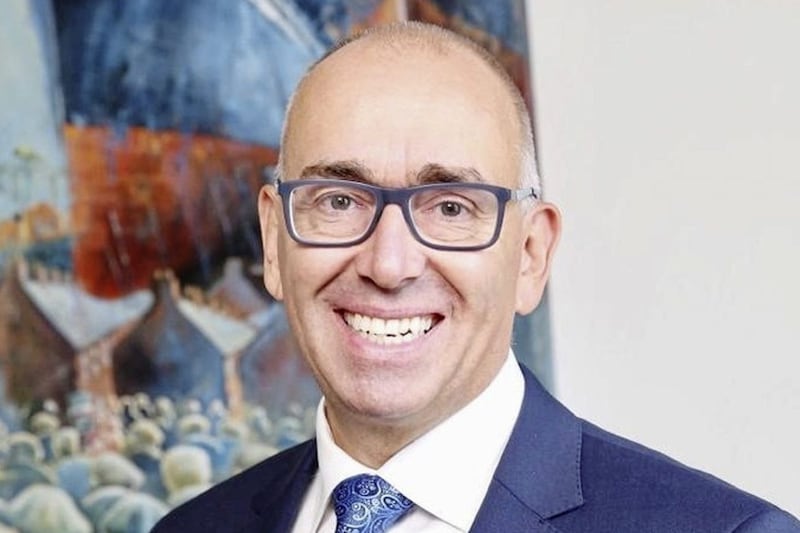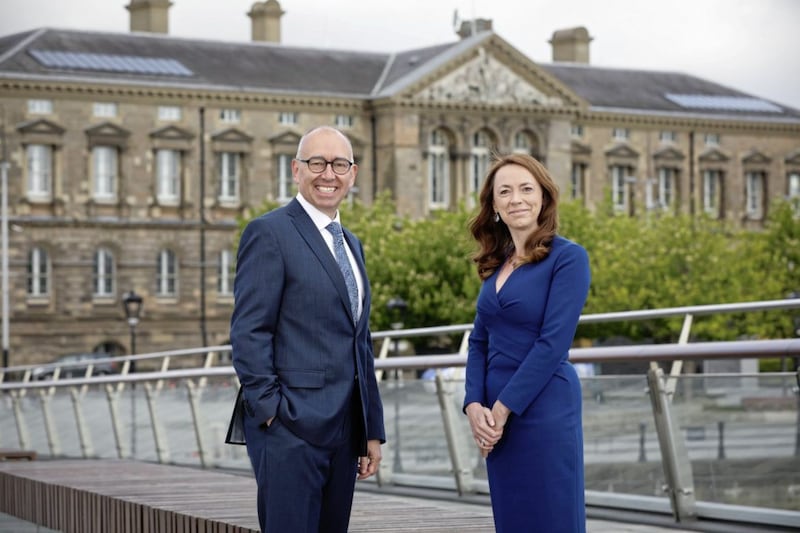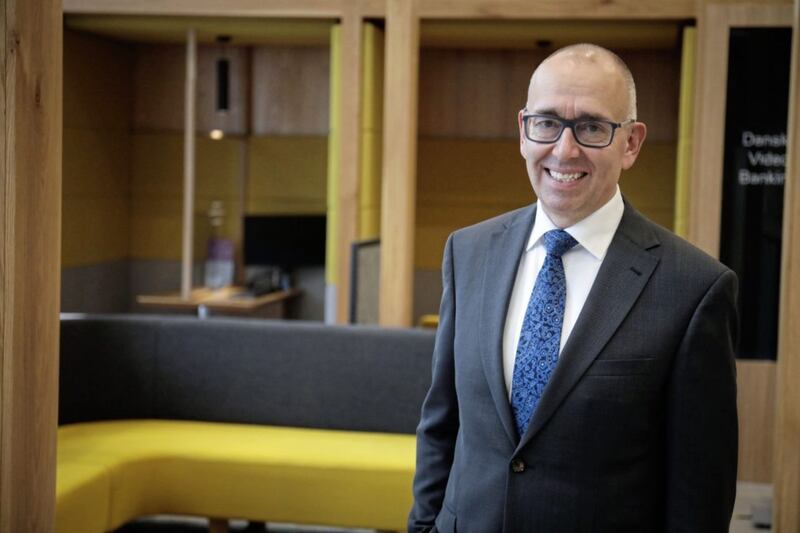THE boss of the north's biggest bank believes the economy will endure short-term double-digit percentage contraction and will almost certainly tip into recession next year, while scores of small businesses will simply be unable to survive the coronavirus tsunami.
But Kevin Kingston insists that financial institutions have "a fundamental role" in keeping Northern Ireland's economy afloat and pledged that his own organisation "is passionate about being a force for good" right now.
Speaking exclusively to the Irish News from his top floor office at Danske Bank's Belfast headquarters, overlooking the City Hall and the empty city streets below, he fervently believes banks have a key role to play in the current crisis, despite criticism they've been slow or reluctant to lend via the government-backed Coronavirus Business Interruption Loan Scheme (CBILS).
Career banker Kingston (he's spent close to 30 years in roles with Danske, and Ulster Bank before that) is hugely respected in the industry (he was the only Northern Ireland banker invited to London for a meeting last month with the Chancellor of the Exchequer and Governor of the Bank of England, an acknowledgement of Danske’s scale in the north).
"The word 'unprecedented' has been used lots, but this situation is precisely that. We've experienced crashes, downturns and recessions before, but nothing comes remotely close to this for business," he said.
Kingston is in regular personal contact with Stormont, including the First Minister, Finance Minister and Economy Minister, to update them on the work Danske is doing to support its customers and the community.
"We're happy to be totally transparent in our numbers, because as the biggest bank here, we provide services to roughly one in three of all businesses, provide one in four of all the new mortgages, and hold one in five of the personal current accounts. This is a significant responsibility and one that we take seriously.
"For business customers, since March 17 we have approved lending and repayment deferrals of around £55 million for businesses in Northern Ireland - well over twice the normal level of lending we would have been doing prior to the crisis.
"Specifically, we have approved 75 loans under the government’s CBILS scheme to a combined value of £19m, and have also approved other Covid-19 related emergency funding of a further £27m for some 545 businesses which did not meet eligibility criteria for CBILS.
"We have also offered to reschedule asset finance agreements for up to six months and so far over 160 customers have availed of this additional option, to the value of £9m of financial support.
"For personal customers, we've cancelled interest on personal overdrafts for up to 86,000 people who may be suffering financial hardship, approved 3,500 mortgage payment holidays, and are bringing in payment breaks for credit card customers."
Danske Bank has also committed to keeping its 40 branches open, dedicating the first hour each day for vulnerable customers, and its contact centres are operating in Dunmurry and Portadown.
Mr Kingston says all but 300 of Danske's 1,400 workforce is currently operating from home, and those who do need to work are financially incentivised (including being paid to take their cars and not use public transport).
"I am very conscious that we are moving at speed to address need as and when we see it, and I would be the first to admit that we won’t always get everything right first time.
"But I can assure you that where we make a mistake then we will move to rectify the situation quickly and in a responsible manner," he said.
"I am determined that Danske Bank can be a force for good in this crisis and I'm happy to be personally held to account when this is all over.
"It will be a different business world in the next year or so. The economy will contract, we will go into recession, and house prices will drop in the short term.
"But Northern Ireland's economy will bounce back from these immediate seismic shocks, and as a bank we'll not be found wanting."







